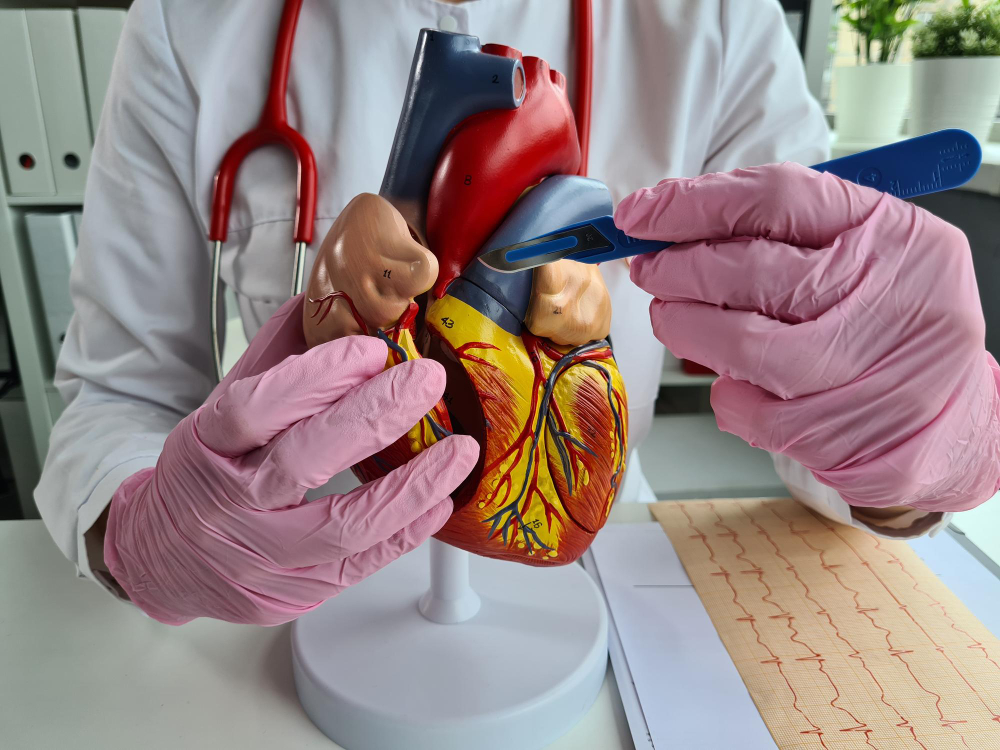Heart Murmurs

Introduction to Heart Murmurs
Heart murmurs are unusual sounds heard between heartbeats, typically detected by a stethoscope during a physical examination. These sounds can vary in pitch, timing, and duration, and may indicate either benign conditions or serious heart problems. Understanding the types, causes, diagnosis, and treatment of heart murmurs is essential for managing heart health effectively.
Types of Heart Murmurs
Innocent (Harmless) Heart Murmurs
Innocent heart murmurs, also known as functional or physiological murmurs, are common and generally harmless. They often occur when blood flows more rapidly than usual through the heart. Innocent murmurs are frequently found in:
- Children: Many children have innocent murmurs that disappear with age.
- Pregnant Women: Increased blood volume during pregnancy can cause innocent murmurs.
- Athletes: High levels of physical activity can lead to faster blood flow, resulting in murmurs.
Abnormal (Pathological) Heart Murmurs
Abnormal heart murmurs are typically caused by underlying heart conditions. These murmurs may indicate problems with the heart valves or other structural issues. Common causes include:
- Valve Disorders: Such as stenosis (narrowing) or regurgitation (leakage).
- Congenital Heart Defects: Structural abnormalities present at birth, like atrial septal defects (ASD) or ventricular septal defects (VSD).
- Infections: Conditions like endocarditis, an infection of the heart’s inner lining, can cause murmurs.
- Cardiomyopathy: Diseases that affect the heart muscle can lead to abnormal murmurs.
Causes of Heart Murmurs
Valve Conditions
- Aortic Stenosis: Narrowing of the aortic valve, obstructing blood flow from the heart to the aorta.
- Mitral Valve Prolapse: A condition where the mitral valve flaps bulge into the left atrium, sometimes causing regurgitation.
- Tricuspid Regurgitation: The tricuspid valve fails to close properly, allowing blood to flow backward into the right atrium.
Congenital Heart Defects
- Atrial Septal Defect (ASD): A hole in the wall between the heart’s upper chambers.
- Ventricular Septal Defect (VSD): A hole in the wall between the heart’s lower chambers.
- Patent Ductus Arteriosus (PDA): A persistent opening between the aorta and the pulmonary artery.
Other Causes
- Anemia: Reduced red blood cell count leading to increased heart workload.
- Hyperthyroidism: Overactive thyroid gland causing increased heart rate and blood flow.
- Fever: Elevated body temperature can increase heart rate and blood flow, resulting in murmurs.
Symptoms Associated with Heart Murmurs
While innocent murmurs usually present no symptoms, abnormal murmurs can be associated with various symptoms depending on the underlying condition. Common symptoms include:
- Shortness of Breath: Difficulty breathing, especially during physical activity.
- Chest Pain: Discomfort or pain in the chest area.
- Fatigue: Persistent tiredness and lack of energy.
- Dizziness or Fainting: Feeling lightheaded or experiencing fainting spells.
- Swelling: In the legs, ankles, or abdomen due to fluid buildup.
Diagnosis of Heart Murmurs
Physical Examination
A doctor listens to the heart using a stethoscope, noting the timing, pitch, and location of the murmur to help determine its cause.
Diagnostic Tests
- Echocardiogram: Uses sound waves to create detailed images of the heart, helping to identify structural abnormalities.
- Electrocardiogram (ECG): Measures the electrical activity of the heart, detecting irregularities in heart rhythm.
- Chest X-ray: Provides images of the heart and lungs, showing the size and shape of the heart.
- Cardiac Catheterization: Involves inserting a catheter into a heart artery to gather more detailed information about the heart’s structure and function.
Treatment Options for Heart Murmurs
Monitoring and Lifestyle Changes
Innocent murmurs often require no treatment, just regular check-ups to ensure they remain harmless. Lifestyle changes can help manage symptoms and underlying conditions, such as:
- Healthy Diet: Emphasizing heart-healthy foods like fruits, vegetables, whole grains, and lean proteins.
- Regular Exercise: Engaging in physical activity to maintain heart health.
- Avoiding Tobacco and Excessive Alcohol: Reducing the risk of heart disease.
Medications
Medications can help manage the symptoms or underlying causes of abnormal murmurs, including:
- Diuretics: Reduce fluid buildup.
- Beta-Blockers: Lower blood pressure and heart rate.
- Antibiotics: Treat infections that may cause or worsen murmurs.
- Anticoagulants: Prevent blood clots in certain valve disorders.
Surgical and Non-Surgical Procedures
Severe cases may require interventions to correct underlying heart issues:
- Valve Repair or Replacement: Surgical procedures to repair or replace faulty heart valves.
- Catheter-Based Procedures: Minimally invasive techniques to repair structural defects or widen narrowed valves.
Living with Heart Murmurs
Regular Follow-Up Care
Ongoing medical check-ups are essential for monitoring heart health and managing any changes in the condition. Regular visits to a cardiologist ensure timely detection and treatment of any complications.
Support and Education
Education about heart health and connecting with support groups can help patients manage their condition effectively. Understanding the nature of heart murmurs and maintaining a heart-healthy lifestyle are crucial for long-term well-being.
